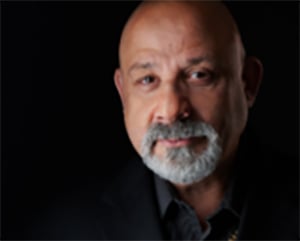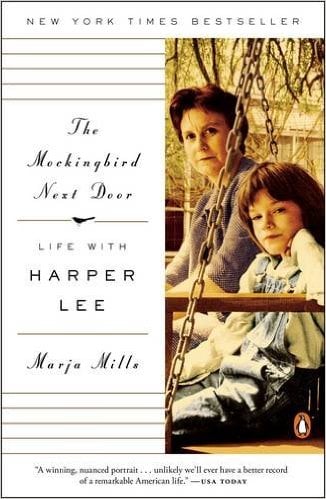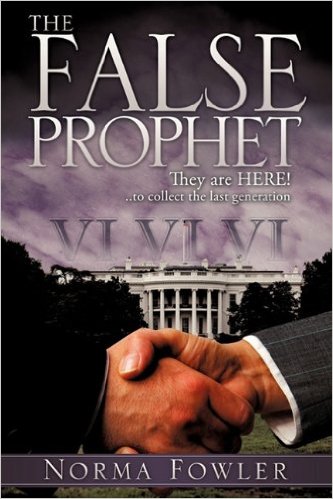The following information comes from the Cincinnati Public Library: “To Kill a Mockingbird remains one of the most beloved novels of our time. Interest in the classic novel’s author, Harper Lee, was renewed this summer with the release of her previously unknown work, Go Set a Watchman.
At 2 p.m. Saturday, October 24, the Public Library of Cincinnati and Hamilton County will bring Marja Mills, a woman who lived next door to Lee for 18 months, to the Main Library, 800 Vine St., Downtown Cincinnati.”
A unique perspective on Harper Lee was the subject of Mills’ best-selling book The Mockingbird Next Door: Life with Harper Lee.
The Library’s release states, “The Mockingbird Next Door is the story of Mills’ friendship with the Lee sisters. It is a testament to the great intelligence, sharp wit, and tremendous storytelling power of these two women. Mills was given a rare opportunity to know Harper Lee, to be part of Lee’s life in Alabama, and to hear Lee and her sister reflect on their upbringing” in their corner of America’s Deep South.
Switching gears, if end-of-the-world scenarios are your cup of tea, Norma Fowler is a local author you might consider. Her book The False Prophet has gained some traction with local readers interested in the apocalypse.
According to the author, hers is a perspective “on the impending Great Tribulation Days and the short reign of the Beast/Anti-Christ and the False Prophet.” Fowler’s book description notes “that the end might be as simple or as horrifying as the story she has written” and “however it does occur, it will not be a good thing to be here on planet earth” during that time.
Each of the foregoing books is available via bookstores and popular book websites.
* * *
Not long ago a friend from my time in U.S. Air Force called. We had not talked in nearly 40 years; we served together 50 years ago in a unit near Washington, D.C.
He used Google and up popped my name, many of my NKyTribune articles, and information about my novels.
After renewing our friendship, he said his wife would like to write fiction and asked if I had any tips.
I get that question often, wherever I go. Surprisingly (at least, to me), I also receive frequent e-mails from writers seeking similar insight. Therefore, here’s my top-ten list:
First, finish the book! Get it all out! Anybody can write a few pages or a few thousand words. Writing three hundred pages and seventy-five thousand (or more) words is the hard part. Become disciplined, a thousand, tightly-edited words a day is a reasonable target. Discipline is vital to an author’s success.
Second, walk in the shoes of each character. Writers have to think like men, women, children, the good, the bad, the young, the old, the tall, and the short. I could on and on; however, I’m sure you get my drift. As a writer, if you cannot think from different perspectives, you must learn how to do it or turn to plumbing or some other gratifying profession.
Third, make your story plausible. You will gain credibility with readers. Do the research and make your story believable.
Fourth, find a good style guide and use it consistently. Readers, publishers, and literary agents dislike inconsistencies. A famous literary agent once told that “bad style is as big a ‘turn off’ as seeing a ‘loogie’ in a punch bowl at the Governor’s Ball.”
Fifth, avoid common crutches when beginning sentences. Examples include: it was, it is, there was. Challenge your creativity.
Sixth, spell character names correctly every time. Trust me; I’ve seen errors by up-and-coming and famous authors alike.
Seventh, learn the common mistakes (there are many) when using the English Language and avoid them like the plague in narrative. Use in dialogue is permitted, as it defines characters. Books offering usage insight are easy to find. A few of my pet peeves include: if and when instead of if or when; curly-headed man instead of curly-haired man; ‘can not’ instead of cannot; he is an alumni of the college…no, he is an alumnus, we are alumni; and then there’s: he drug it out of the attic. Please remember a drug is something that alleviates pain or illness. I don’t mind using colloquialisms in dialogue but I dislike them in narrative.
Eighth, never use fourteen, or twelve, or ten, or eight words when four do the job. My point: learn to be concise. Readers love that. You don’t have to tell them everything. Let them invest their time in your story and use their imaginations. Unless you are paid by the word, don’t be long-winded. As Hemingway once said, a writer has to have to have a built-in ‘crap’ detector (Old Hem really used the ‘S’ word; however, I will not).
Ninth, ‘never ever’ rely on spell check as a final proofing authority. Spell check is not, you are. Proof, proof, and proof again; then, give it to six people to read. Then, proof it again.
Tenth, learn as much as you can about writing in the active voice.
When finished, repeat steps one through ten.
* * * *
Don’t forget the Books on the Banks Festival is Saturday, October 17, from 10 a.m. to 4 p.m. at Duke Energy Convention Center, 525 Elm Street, in Cincinnati. Many local and national authors will attend.
Donald Then, a novelist and experienced editor and journalist, is NKyTribune’s literary editor. He will review books written by local authors or those with a Northern Kentucky setting. Reach him at author@djamesthen.com. Visit his web site at www.djamesthen.com. You can also follow Don on Twitter: Novelguy@DJamesThen.























